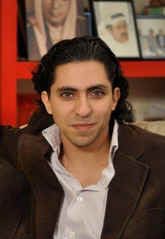Last Wednesday, an official statement from Saudi Arabia condemned the shootings at Charlie Hebdo's office in Paris. "This cowardly terrorist attack," it said, "is incompatible with Islam".
The Saudi statement, like others from the Gulf Cooperation Council and the Organisation of Islamic Cooperation, focused on the terrorist nature of the killings, ignoring the fact that in Saudi Arabia and most other Arab countries the journalists at Charlie Hebdo would be treated as criminals.
The Saudi objection, therefore, is that the "punishment" of these blasphemers was not carried out according to due process. Yasir Qadhi, an American Islamic scholar, explains:
"Even for those who believe that the penalty for blasphemy should be death: by unanimous consensus of ALL the scholars of Islam, this must take place after a legitimate trial, by a qualified judge, appointed by a legitimate Islamic state. Under NO circumstances does Islam allow vigilante justice, for to open this door leads to chaos, confusion and bloodshed."
This morning Saudi Arabia provided an example of the "correct" way to deal with such cases. As Friday prayers ended in Jeddah, Raid Badawi, a liberal activist, was hauled from his prison cell and given 50 lashes in public. He is due to receive 50 lashes every Friday over the next 20 weeks – making 1,000 lashes in total. He is also serving a 10-year jail sentence and has been ordered to pay a fine of one milion riyals ($266,000).

Raif Badawi
Badawi has been imprisoned since June 2012, having been initially detained on charges that included "setting up a website that undermines general security" and ridiculing Islamic religious figures.
He edited a website known as "Saudi Arabian Liberals" which published an article about Valentine's Day (celebration of which is banned in the kingdom) and another suggesting that al-Imam Mohamed ibn Saud University had become "a den for terrorists".
One article, which mocked the kingdom's religious police, ended sarcastically with the words: "Congratulations to us for the Commission on the Promotion of Virtue for teaching us virtue and for its eagerness to ensure that all members of the Saudi public are among the people of paradise."
At a hearing before Jeddah District Court late in 2012, a judge reportedly ordered Badawi to "repent to God". When he refused, the judge referred the case to a higher court, recommending that it try Badawi for apostasy – a charge that carries the death penalty. Part of the evidence for Badawi's supposed apostasy was that he had pressed the "Like" button on a Facebook page for Arab Christians.
The threat of execution was eventually lifted when a court rejected the apostasy charge but his initial sentence of 600 lashes and seven years in jail was increased.
Badawi had been harassed for several years, Human Rights Watch says:
"In March 2008, authorities arrested Badawi and questioned him about his website, but released him a day later. In May 2008, Badawi was formally charged with 'setting up an electronic site that insults Islam' and he left the country. He returned when prosecutors apparently decided to drop the charges, he told Human Rights Watch. In 2009, the authorities barred Badawi from traveling abroad and froze his business interests, depriving him of a source of income, he told Human Rights Watch.
"On March 18, 2012, the well-known cleric Sheikh Abdulrahman al-Barrak issued a religious ruling declaring Badawi an 'unbeliever … and apostate who must be tried and sentenced according to what his words require'.
"Al-Barrak claimed that Badawi had said 'that Muslims, Jews, Christians, and atheists are all equal,' and that even if these were not Badawi’s own opinions but 'an account of the words of others, this is not allowed unless accompanied by a repudiation' of such words.
"Badawi and other contributors to his website declared May 7, 2012, 'A Day for Saudi Liberals,' hoping to spark an open discussion on distinctions between 'popular' and 'politicised' religion, Su'ad al-Shammar, the website's director, told Human Rights Watch."
Yesterday, following news that Badawi's flogging was imminent, the US State Department issued a rare public criticism of its Gulf ally:
"We are greatly concerned by reports that human rights activist Raif Badawi will start facing the inhumane punishment of a 1,000 lashes, in addition to serving a 10-year sentence in prison for exercising his rights to freedom of expression and religion.
"The United States Government calls on Saudi authorities to cancel this brutal punishment and to review Badawi’s case and sentence. The United States strongly opposes laws, including apostasy laws, that restrict the exercise of these freedoms, and urges all countries to uphold these rights in practice."
This, obviously, had no effect whatsoever, and the question now is what the US or other countries will do about it. Writing for the Washington Post, Fareed Zakaria comments:
"It’s not enough for Muslim leaders to condemn people who kill those they consider as blasphemers if their own governments endorse the idea of punishing blasphemy at the very same time. The US religious freedom commission and the UN Human Rights Committee have both declared that blasphemy laws violate universal human rights because they violate freedom of speech and expression. They are correct.
"In Muslim-majority countries, no one dares to dial back these laws. In western countries, no one confronts allies on these issues. But blasphemy is not a purely domestic matter, of concern only to those who worry about countries' internal affairs. It now sits on the bloody crossroad between radical Islamists and western societies. It cannot be avoided any more."
Posted by Brian Whitaker
Friday, 9 January 2015

 RSS Feed
RSS Feed
